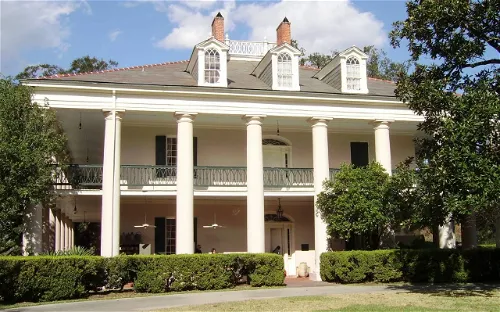Oak Alley Plantation and its collection
Oak Alley Plantation is a historic site located in the community of Vacherie, in Saint James Parish, Louisiana. It is situated on the west bank of the Mississippi River. This plantation is known for its rich history and its unique path leading to the house, lined with centuries-old oak trees on both sides.
Historical Significance of Oak Alley Plantation
Oak Alley Plantation was declared a national historic monument in 1974. It is recognized as the largest plantation in the southern United States. This recognition adds to the significance of the plantation and makes it a notable site for visitors interested in history and architecture.
Architectural Features of Oak Alley Plantation
The main building of Oak Alley Plantation is made in a neoclassical style and is surrounded on all four sides by 28 Doric columns. These columns correspond to the 28 oaks lining the main avenue leading to the house. The estate also includes an old car garage, a blacksmith's shop, and the Stewart cemetery, adding to the historical charm of the site.
History & Anthropology Historic house Garden & Park

